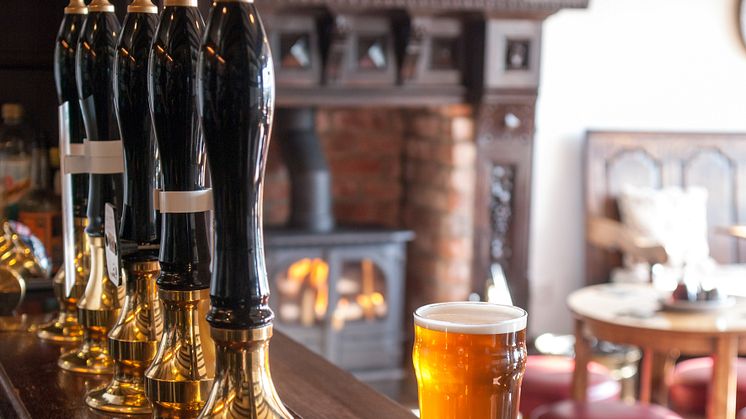
Press release -
Research investigating links between pubs and crime rates offers insights into better policing
Research led by a Northumbria academic exploring the relationship between the presence of pubs and crime rates across England and Wales has been published in European Planning Studies.
The study used data collected from 375 local authorities between 2003 and 2018, and looked in particular at the density of pubs at a localised level and the differences this made in the rates and types of crimes between rural and urban areas. Lead author Professor Ignazio Cabras believes the findings will help policy makers better understand and monitor crime levels at a local level, and therefore put in place more effective policing and crime prevention measures.
In rural areas the research identified a significant relationship between pubs and crimes classified as public disorder, while in urban areas the analysis identified a significant relationship between pubs and crimes classified as violence without injuries and, to a lesser extent, damage and arson. The incidence of crime in relation to pubs was also higher in sub-urban areas, with strong relationships identified for crime classified as theft and sexual offences.
Professor Cabras says the study yields three important results. Firstly, the analysis indicates that rural areas experience a much lower incidence of crime issues related to the number of pubs compared to more urbanised areas, confirming the positive role played by pubs within rural communities.
Secondly, the study identifies a positive relationship between the number of pubs and specific types of crimes depending on how urban or rural the area is. This offers insights into designing and developing policies and initiatives aimed at increasing the effectiveness of policing at local level and, at the same time, increasing levels of community cohesion and trust within local communities.
Thirdly, findings from the study corroborate evidence that the decline in the number of pubs in UK, regardless of geographical areas, could potentially have important repercussions on monitoring and understanding crime levels at a local level. This is significant, according to Professor Cabras, because recent UK government initiatives tackling crimes have neglected the role pubs and publicans play within local communities. He explains: “Our research work confirms the importance of place-based strategies in tackling social issues such as crime levels based on the presence of pubs. As the association between crime and pubs is multi-faceted, the formation of formal and informal policing (or lack thereof) gravitating around pubs plays a crucial role in whether the presence of pubs acts as a deterrent or an enabler of criminal behaviour.
“Given the paucity of research targeting the effects of pub closures on local communities, our study provides a fresh and timely contribution to the literature. It also provides a venue for new research aimed at better understanding the potential of pubs in terms of generating social capital, strengthening community cohesion, and preventing crime”.
Greg Mulholland, Campaign Director for the Campaign for Pubs added: ‘Pubs play a very important role in our communities and our society and policy makers and others underestimate the many ways they do this. Well run pubs are important focal points and help communities come together and address a variety of issues, including dealing with crime and anti-social behaviour. Good pubs have very strong reputations locally and command respect from people and without them areas lose some of their social cohesion, which has many knock off effects.
“This is an important study that shows that pubs are relevant to being able to monitor and track crime and also that the loss of a pub not only takes away a community focal point but also makes it harder to measure do this, yet another negative of communities of losing their local pubs”.
For more information on research at Northumbria please visit www.northumbria.ac.uk/research
Topics
UNIVERSITY OF THE YEAR 2022 (Times Higher Education Awards)
Northumbria is a research-intensive university that unlocks potential for all, changing lives regionally, nationally and internationally. Find out more about us at www.northumbria.ac.uk
--- Please contact media.communications@northumbria.ac.uk with any media enquiries or interview requests ---







